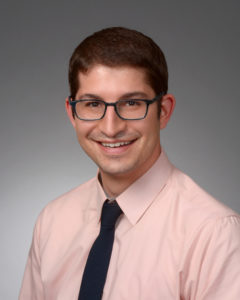Northwestern Medicine scientists have demonstrated that a specific mitochondrial protein complex is essential to the immunosuppressive activity of regulatory T-cells, findings with potential significance for a wide variety of autoimmune diseases.
The study, published in Nature, demonstrated that the suppressive function of regulatory T (Treg) cells was impaired when they had been modified to lack mitochondria complex III, previously known as an essential component of mitochondrial function.
Complex III is one of the five protein complexes tightly folded in the inner mitochondrial membrane involved in the process of converting oxygen and simple sugars into ATP, the main source of energy in a cell.

The investigators determined that, despite decreased expression of genes associated with Treg function, the Treg cells lacking complex III still survived, proliferated, and maintained stable expression of the transcription factor Foxp3 that controls Treg cell development.
Furthermore, the scientists discovered the inhibition of complex III resulted in elevated levels of metabolites L-2-hydroxyglutarate (L-2HG) and succinate, which caused distinct cellular changes — through the regulation of DNA methylation and gene transcription.
“Beyond its dominant function as energy ‘powerhouse of the cell,’ our study reveals that mitochondria can determine cellular function by controlling gene expression through metabolites,” explained Navdeep Chandel, PhD, the David W. Cugell, MD, Professor of Medicine in the Division of Pulmonary and Critical Care and of Biochemistry and Molecular Genetics.
Treg cells maintain immunological tolerance by de-activating an immune response; that suppressive activity is thought to prevent auto-immunity and dampen inflammation. The scientists in the current study discovered that in mice whose Treg cells had mitochondrial complex III inhibited, the development of fatal inflammatory disease resulted early in life.
The study was a collaboration between the Chandel Laboratory and Benjamin Singer, MD, assistant professor of Medicine in the Division of Pulmonary and Critical Care and of Biochemistry and Molecular Genetics. Samuel Weinberg, an MD/PhD student in the Medical Scientist Training Program and working in the Chandel Laboratory, was the first author.

“The findings open up the possibility that metabolites such as L-2HG could underlie immune disorders linked with T-cell-dependent hyper-inflammation including colitis, lupus or psoriasis,” said Chandel, also a member of the Robert H. Lurie Comprehensive Cancer Center of Northwestern University.
Additional Northwestern co-authors include Paul Schumacker, PhD, professor of Pediatrics in the Division of Neonatology, Cell and Molecular Biology and of Medicine in the Division of Pulmonary and Critical Care; Peng Gao, PhD, research assistant professor of Medicine in the Division of Hematology and Oncology; and Hiam Abdala-Valencia, PhD, research assistant professor of Medicine in the Division of Pulmonary and Critical Care.
In addition, Inmaculada Martínez-Reyes, PhD, and Elizabeth Steinert, PhD, both postdoctoral fellows in the Chandel Lab; Manan Mehta and Laura Sena, graduate students in the Chandel Lab; Kathryn Helmin in the Singer Lab; and Carlos Martinez, were also co-authors of the study.
The study was supported by the National Institutes of Health grants R35CA197532, 5P01AG049665, 5P01HL071643, T32 T32HL076139, and K08HL128867. Benjamin Singer, MD, was funded by the Francis Family Foundation’s Parker B. Francis Research Opportunity Award. Elizabeth M. Steinert is a Cancer Research Institute Irvington Fellow supported by the Cancer Research Institute.






